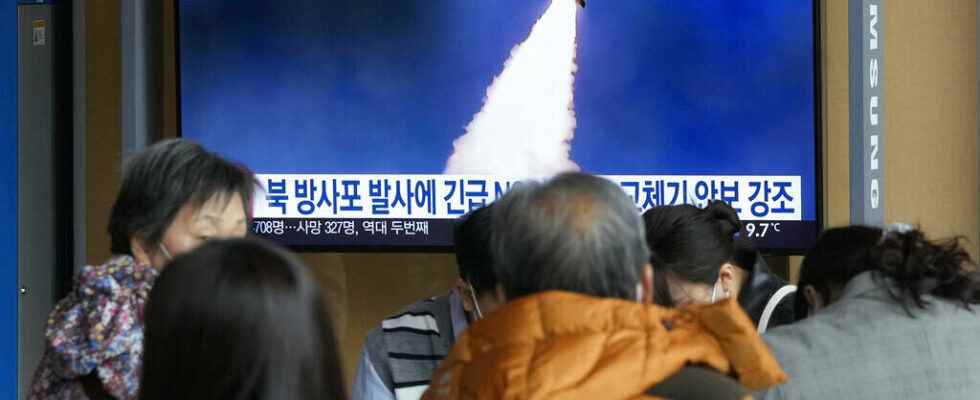In the space of an hour, four shots were fired, in the direction of the sea, from an unspecified location in South Pyongan province, according to the South Korean national news agency Yonhap.
With our correspondent in Seoul, Nicholas Rocca
North Korea continues its weapons tests at a frantic pace. This Sunday morning March 20, four shots from a multiple rocket launcher were sent into the sea towards Japan. Earlier this week, a ballistic missile test was cut short when the projectile exploded in flight near Pyongyang. A failure for the North Korean regime, which seems determined to continue improving its armament, at the risk of increasing tensions with its neighbors and its American enemy.
In addition to improving the country’s military arsenal and displaying its power to its population, these North Korean tests convey diplomatic messages. This Sunday’s message, if there is one, is clearly addressed to Seoul.
While the country has just elected Yoon Suk-yeol in the presidency, a supporter of a harder line against Pyongyang, these four shots are a clear threat to the South Korean army. Its last years, the North presented many innovations on the multiple rocket launchers, making this weapon one of the hypotheses favored by the experts in the event of a preemptive strike on the South.
Since January 2022, Pyongyang has carried out ten major weapons tests, including two described as launches of ” reconnaissance satellites by North Korea, and as tests of an intercontinental ballistic missile (ICBM) system by Seoul and Washington.
► To read also: North Korea would have launched its most powerful missile since 2017
To deal with this eventuality, Seoul has invested 2.6 billion dollars (2.3 billion EUR) in 2021 to equip itself with an artillery interception system like the Israeli iron dome. The shootings of this Sunday March 20 could be a violation of theSeptember 2018 inter-Korean agreementif they took place near the border between the two countries.
These repeated tests are inflating the rumors surrounding the upcoming launch of the Hwasong 17, an intercontinental ballistic missile nicknamed the ” monster “. This test, which would mean the end of the self-imposed moratorium since 2017 by North Korea on the testing of long-range weapons, would significantly increase tension in the region.
► Read also: Washington accuses North Korea of testing a new ballistic missile system
